Healthy Alternatives to CoffeeIt can be difficult to put down that cup of coffee. There are many reasons to appreciate coffee, including the deep, nutty flavour, the energy boost, and the ritual of sipping. 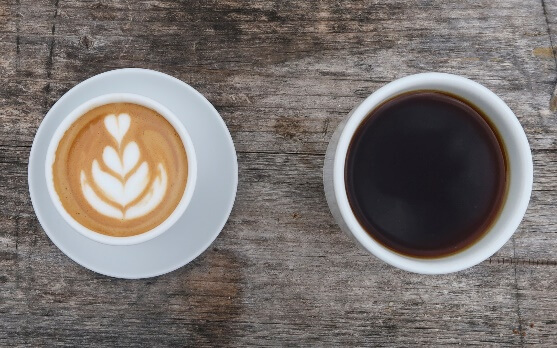
However, it is occasionally advisable to cut ties with the things you adore, and coffee is no different. You may have discovered that caffeine keeps you up at night, makes you feel jittery later, or that you need to limit your coffee intake due to a health problem. Finding a coffee substitute can make the move easier if you have been considering your daily cup (or two). Here are some healthy alternatives of coffee: 1. Matcha Tea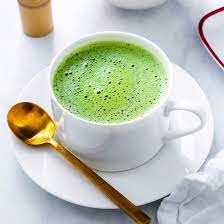
Give matcha a try if you long for the morning routine of drinking something warm. According to Simon, it is a form of powdered green tea with lots of antioxidants that could help reduce inflammation. A brilliant green latte can be made by combining the powder with milk or a milk substitute, or you can mix it with hot water to make an earthy-flavoured tea. Additionally, the buzz you will get from matcha will keep you attentive without giving you the jitters you usually get from coffee. Simon says that matcha contains the amino acid L-theanine, which offers you a calmer energy boost without a crash. (This is one of the reasons why HUM's Calm Sweet Calm contains l-theanine.) Be aware that matcha does contain caffeine, though the amount is much lower than you would find in coffee, she adds. 2. Fresh fruit and vegetable juices and smoothies
An excellent approach to acquire a substantial supply of vitamins and minerals per serving is to blend or extract fresh fruits and vegetables into a juice or smoothie Additionally, fruits include glucose, which is the brain's primary fuel source. Use your juicer or blender to experiment with various taste combinations until you discover one you like. (We adore this skin-hydrating coconut smoothie or vitamin C smoothie.) 3. Chicory Coffee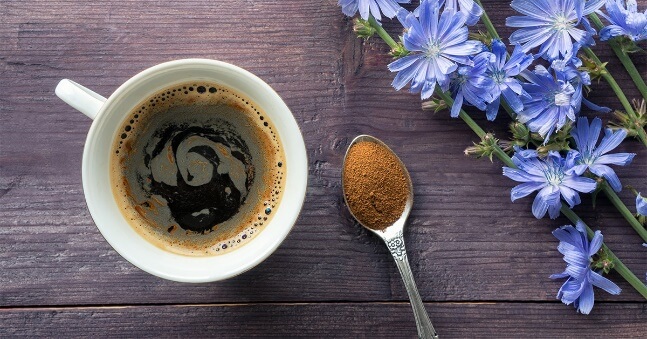
Chicory coffee is for those people who cannot live without the flavour of coffee. This beverage, which is made from chicory root, has the same appearance, flavour, and aroma of coffee but is devoid of the acidity and caffeine that come from coffee beans. It might also help with blood sugar regulation: After eight weeks, a 2017 study indicated that chicory inulin helped rats with type 2 diabetes control their blood sugar. Some coffee shops serve chicory coffee, or you can purchase the ground product and make it at home. Chicory coffee is frequently blended 50/50 with ordinary coffee, making it an excellent way to reduce your caffeine intake. But before placing an order, look at the label or menu if you would prefer to avoid normal coffee completely. Women who are expecting or nursing should never eat chicory. 4. Apple Cider Vinegar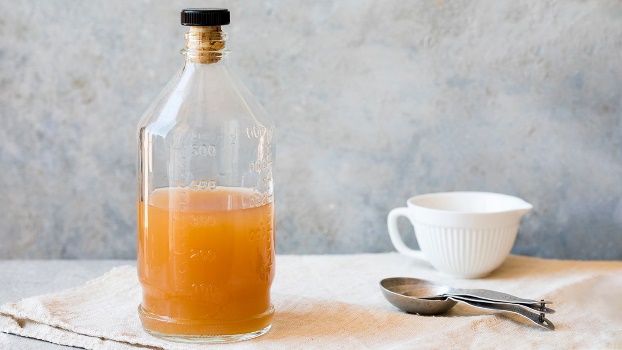
The many advantages connected with ACV have been attributed to acetic acid. By keeping your energy levels up, reducing exhaustion, and assisting with blood sugar regulation, it helps to give you more energy throughout the day, according to D'Angelo. Avoid drinking ACV straight because it might be damaging to your teeth. The Cleveland Clinic suggests that you instead dilute a tiny amount (no more than 1 to 2 tablespoons) into a warm mug of water. 5. Chai Tea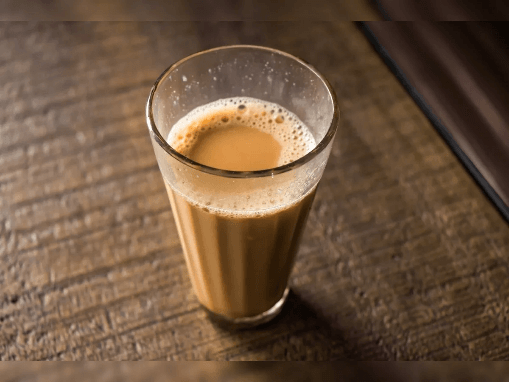
The sweet and sour beverage chai has its roots in India. Even while chai tea contains caffeine, Simon points out that many brands have less of it than a cup of drip coffee in the morning. In comparison to a cup of coffee, which can have up to 75 mg of caffeine, "the average cup of chai will contain roughly 25 mg of caffeine." As a result, chai is a fantastic way to reduce your daily caffeine intake while still enjoying some of its energising effects. Try making it with hot water and some sweetener (if desired) or make a frothy chai latte instead. 6. Hot water with lemon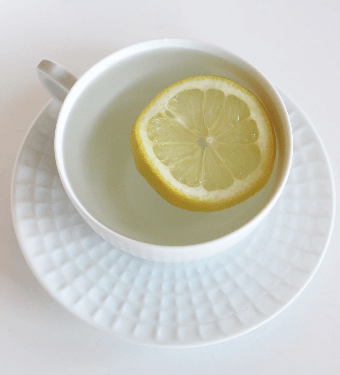
While it will not provide you with the same caffeine boost as your morning cup of coffee, hot water with lemon has grown to be a popular morning beverage, according to Simon. After a long night of sleep, you can rehydrate by simply adding a little citrus juice to a mug of plain, hot water to give it a refreshing flavour. Simon adds that lemons are also a fantastic source of vitamin C, an antioxidant. Though Simon suggests warming the water, you can absolutely drink it cold. She says, "It feels like a great, calming substitute to a morning cup of coffee." 7. Kombucha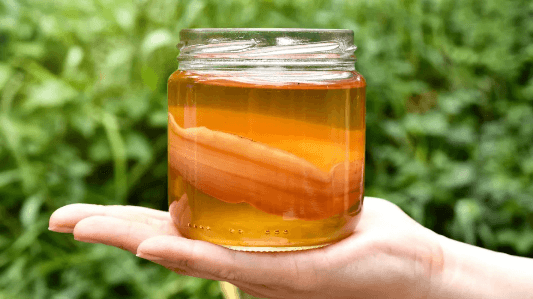
Popular fermented tea beverage is kombucha. According to a registered dietitian with Wellness Verge, kombucha contains B vitamins, which are essential for assisting your body in releasing energy. It is also a strong source of antioxidants and probiotics, the health-promoting bacteria you need for a balanced gut. According to her, these nutrients can improve digestion and offer much-needed energy without the normal coffee crash. Mitri advises choosing kombucha variants with fewer than five grammes of sugar per serving when purchasing. Alternately, consider creating your own. 8. Golden Milk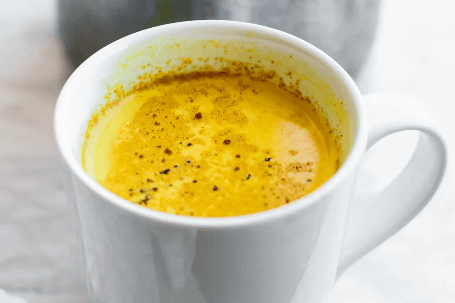
A rich, caffeine-free alternative to coffee is golden milk. Due to the potent chemical curcumin, turmeric may have potent anti-inflammatory benefits in addition to giving your beverage a lovely golden hue. Additionally, both fat and black pepper help your body absorb curcumin more readily. As a result, you might want to think about using full milk instead of fat-free for this beverage. A simple golden milk can be made in 5 minutes or less. This is how:
9. Yerba Mate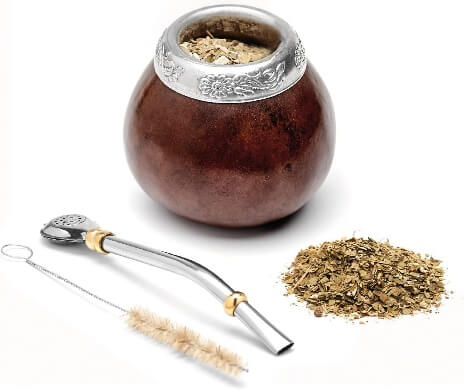
The dried leaves of the llex paraguriensis, a South American holly tree, are used to make yerba mate, a herbal drink that contains natural caffeine. Yerba mate is a wonderful option if you want to replace coffee but do not want to give up your morning caffeine. Caffeine level in one cup (237 ml) is approximately 78 mg, which is comparable to the amount in a typical cup of coffee. Additionally rich in beneficial plant substances that function as antioxidants is yerba mate. In fact, some research indicates that it might contain more antioxidants than green tea. It also includes a number of vitamins and minerals, such as calcium, iron, phosphorus, riboflavin, thiamine, and vitamins C and E. It has an acquired flavour that could be characterised as smoky or bitter. Yerba mate is traditionally produced in a yerba mate gourd and eaten with a metal straw while being diluted with water. You may also buy yerba mate tea bags or steep the leaves in a tea ball to make yerba mate sipping simpler. Simply immerse the leaves in hot water for 3 to 5 minutes and enjoy under these circumstances. Despite yerba mate's alleged health advantages, you should only consume it occasionally. Studies have connected regular, high intakes of 1-2 litres per day to an uptick in some cancer types. 10. Rooibos Tea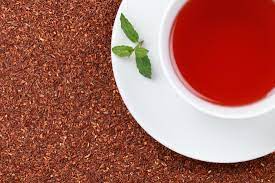
South Africa gave birth to the caffeine-free beverage known as Rooibos, or red tea. In contrast to coffee and other teas, rooibos has a low concentration of tannin antioxidants, which can be advantageous but can potentially obstruct the absorption of iron. Rooibos has a high concentration of other antioxidants despite having little tannin. There have been very few studies. One test-tube study revealed promise for rooibos to lower cancer risk, while another found potential for rooibos to protect against heart disease. Rooibos steeps for a longer period than most teas, and over-steeping has no bitter flavour. Instead, rooibos tastes fruity and slightly sweet. Use a tea filter to steep 1-1.5 teaspoons of loose rooibos for up to 10 minutes to make a cup for yourself. Optionally, you can add lemon and honey to taste. 11. Golden SuperLatte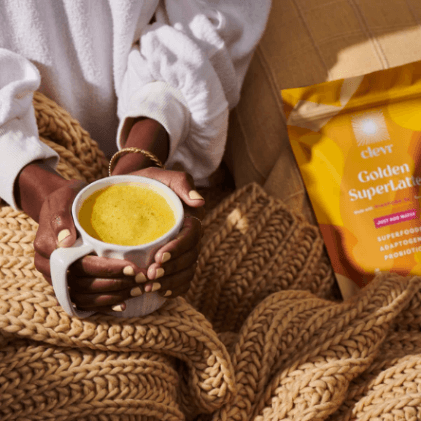
These Clevr Blends SuperLattes, which are packed with adaptogens, powdered mushrooms, and probiotics, are intended to be a healthy alternative to sugary coffee shop drinks. Meghan Markle and Oprah Winfrey have even endorsed them. According to Fischer, this choice satisfies the latte appetite while also offering anti-inflammatory effects because to the necessary elements it contains. When combined with black pepper, which improves the absorption of turmeric in this blended product, this is extremely beneficial. You should also sample the matcha, chai, and coffee flavours (40-55 mg caffeine). 12. Dandy Tea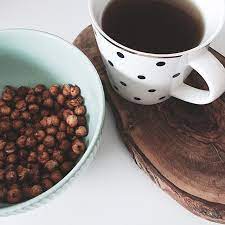
This nutritious tea contains a full complement of antioxidants, vitamins, and minerals that can help add to a balanced diet. It is made from dandelion and chicory roots, as well as barley and rye. Additionally, it has a coffee-like flavour, making it perfect for evening use when you want coffee but don't want the caffeine, according to Fischer. 13. Adaptogenic Coffee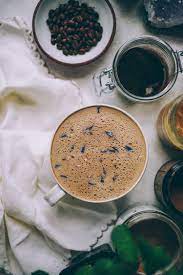
You may be familiar with adaptogens like Ashwagandha and Turmeric, but have you ever heard of them combined into something resembling coffee? To begin with, adaptogens are the plants and fungi that assist us in adjusting to and coping with stress. These are frequently taken as supplements, but you can now use them as a healthy coffee alternative! Since different adaptogen properties can be attributed to each one, different adaptogen forms and types are available. You can add any of the adaptogens to your coffee (in liquid form) after it has finished brewing if you still want to enjoy these advantages while drinking ordinary coffee.
Next TopicCrackStreams Alternatives
|
 For Videos Join Our Youtube Channel: Join Now
For Videos Join Our Youtube Channel: Join Now
Feedback
- Send your Feedback to [email protected]
Help Others, Please Share










